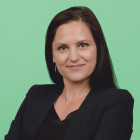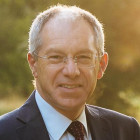Presentations
DEI Principles and Ethical Tech in Practice
Date Thursday, Dec 2 Time – Room: Rook
Just as fast as digital technologies have accelerated learning and knowledge for many, a lack of access and a lack of focus on inclusion and specialised needs has left many behind. In this session we'll share what an all-embracing outlook and a readiness to pursue innovative design solutions can lead to.
We will also take a critical look at whether the solutions we are using are equitable, or whether they merely reinforce opportunities for those that are already being served.
Finally, an example will show how a technology ethics tool can build students' general capabilities and awareness on these important issues, and more.

Mark West
Education Specialist, UNESCO, France
Mark West works in UNESCO’s Education Sector, where he examines how technology can improve the quality, equity, and accessibility of learning.
He is currently leading a project to develop a Global Declaration on Connectivity for Education and authoring a UNESCO report called ‘An Ed-Tech Tragedy’ about lessons learned following the global shift from school-based education to technology-based education during the COVID-19 pandemic.
He is also active in outlining guidance to make digital solutions more inclusive for people with low literacy skills, helping governments enact policies and practices to ensure that women and girls develop strong digital skills, and reviewing educational innovations. He has written extensively about technology and education, and his most recent publication, ‘I’d Blush if I Could’, led Apple and other technology companies to make major changes to the way Siri and other AI assistants project gender.
Prior to joining UNESCO in 2011, Mr. West researched education in Azerbaijan as a Fulbright Fellow and worked as a teacher and teacher trainer in the United States. He is a graduate of Stanford University.

van der Vorst Rens
Technophilosopher, Fontys University, Netherlands
Rens van der Vorst works as Technophilosopher at Fontys University. He teaches, writes and does research. Does technology make our lives better? And, what is exactly meant by better? Can we combine humor and technology and still communicate this very important message?
Rens van der Vorst is program lead of the Technology Impact Cycle Tool, a free online tool that helps people think about the impact of technology (www.tict.io) and runs www.quantifiedstudent.nl. A project to create a RunKeeper App for studying. He also manages www.technofilosofie.com a leading website on technophilosophy.
He is the author of "Waarom je altijd wilt winnen van je navigatiesysteem (2020)" a book with the 100 most important technological questions of today. He also wrote Smartphones are the New Smoking (Appen is het Nieuwe Roken in 2017) and writes columns for online and offline outlets. He gives a lot of talks, mostly as a keynote speaker, on our relation with technology. These talks are funny, confronting and interactive and for everyone. He also gave two TedxTalks on different subjects.
Rens van der Vorst (50) lives in Breda, is married and has two children.

Johanna Steiner
Education Management, equalizent Social Franchise, Austria
Johanna Steiner studied Educational Science focussing on Educational Needs and Sign Language. After finishing her degree she started working as a trainer at equalizent, a bilingual educational institute for the Deaf based in Vienna, in 2017. Soon after, Ms. Steiner became the leading part in developing accessible eLearning games for the Deaf, focussing on didactics, content and visual requirements.
In 2019, she became part of the team developing the Social Franchise System, taking over the lead of all educational concerns within that year. Since 2020, she holds the position of Education Management within the Social Franchise System.

Simon Hayhoe
Reader in Education, University of Bath, United Kingdom
Simon is a Reader in Education, University of Bath, UK. He is also a Centre Associate in the Centre for the Philosophy of Natural and Social Science, London School of Economics, an Associate of the Scottish Sensory Centre, University of Edinburgh and Temporary Advisor to the World Health Organisation. Simon’s current work focuses on visual impairment and visual culture, and accessible and inclusive technology. His most recent project investigated the use of mobile technologies as tools of inclusion for people with disabilities, sponsored by a Horizon 2020 grant from the European Union. The project was led by VRVis (based in Vienna) and its partners included the Open University, national museums in London, Madrid and Vienna and technology companies in Vienna and Belgrade. Simon has previously conducted research projects in the US, Canada, United Arab Emirates and the UK, and he is currently co-editor of the Routledge book series. He has also won several awards and fellowships, including a Fulbright All Disciplines Scholar's Award and fellowships of the British Computer Society and the Metropolitan Museum of Art (New York, USA). He has also delivered keynotes and guest lectures for Harvard University, London School of Economics, MIT, and University of California Berkeley.
Links
Moderator

Graham Hudson
Special Adviser, GA Partnership/e-Assessment Association, United Kingdom
Graham Hudson is a distinguished UK-based assessment consultant who has worked extensively for national examination boards and government agencies on managing and modernising examination systems. His career covers many milestones in educational and assessment reforms in the UK, including the introduction of GCSE examinations, national curriculum reforms and re-structuring A levels. He has delivered significant national marking programmes, undertaken nationally-funded research into the use of technology in assessment and introduced one of the first systems in the UK to scan examination scripts and mark from image. Latterly he has specialised in supporting business development for organisations and enabling the transition from paper-based assessment to digital delivery for many national and professional organisations. He has travelled extensively to promote and implement e-assessment solutions. In April 2021 he was appointed as a Board Member of Qualifications Wales, the regulator for all qualifications to university level in the nation. He will speak from his long-standing experience in this arena.
Supporting Neurodiversity and Students with Sensory and Communication Impairments Using Mainstream Mobile Technologies, Simon Hayhoe
This presentation outlines the challenge of supporting higher education students in mainstream classes, where they study alongside their peers using mainstream technologies.
The key take-aways are that neurodiversity and sensory and communication impairments are often overlooked in higher education or people are afraid of addressing issues related to these issues. However, good management strategies using mainstream technologies can often address many of these fears and hurdles.
Outcomes:
In this session:
- You will learn about mainstream mobile technologies, apps and operating systems
- You will have considered strategies for supporting students with specialised needs
- You will better understand the challenges that neurodiverse students and students with sensory and communication impairments face.
Accessible eLearning Games for Deaf Learners, Johanna Steiner
The needs of Deaf learners can differ from those of hearing people. Many platforms are developed for the hearing world and are not fully accessible for Deaf people. We took on the challenge to provide the best possible eLearning games for our participants, incorporating sign language videos flexibly. In this presentation, you will learn about the development process, special features as well as see video samples of the usage in our classes.
Outcomes:
- Be aware of the specific needs of Deaf learners
- See how accessible eLearning for Deaf participants can look like
- Understand basic principles of bilingual teaching and learning
How to Help Students Think About the Impact of Technology, van der Vorst Rens
If educators have an obligation to teach students to think about the impact of digital technologies, how can we do so in the best possible manner?
Our students will need to be provided with essential facts, as well as with general skills that will enable them to consider the role of a technology/technologies.
In order to achieve this, educators must use structured methods and tried-and-tested tools to support students. Asking the right questions will be key: is a specific digital technology the only and best solution to a certain problem? Is the technology transparent? Inclusive? Sustainable?
This presentation will discuss techno-ethics and how students can be taught to make smart decisions about technologies, for instance by using the (free, open) Technology Impact Cycle Tool (TICT).
Outcomes:
- Aware of the TICT Tool
- Aware of the importance of technology ethics
- Understand how to make the next step